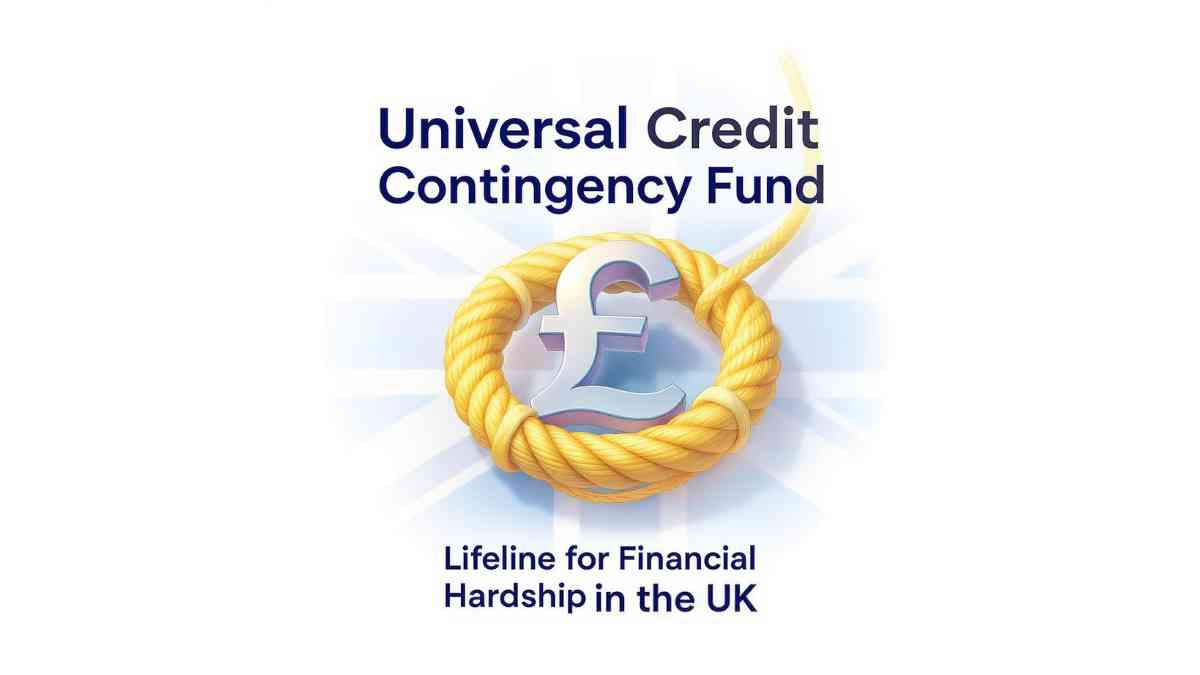Universal Credit Contingency Fund: Lifeline for Financial Hardship in the UK

In today’s uncertain economic climate, many individuals and families find themselves caught in the gap between losing a source of income and receiving their first welfare payment. For claimants of Universal Credit in the UK, the initial waiting period can be particularly challenging. This is where the Universal Credit Contingency Fund steps in as a vital safety net for those in urgent need.
Understanding the Universal Credit Contingency Fund
The Universal Credit Contingency Fund, known in Northern Ireland as the Universal Credit New Claims Grant, is a form of non-repayable financial aid designed to support claimants facing severe hardship during the early phase of their Universal Credit claim. This grant ensures that vulnerable individuals and families can afford essential living costs, such as food, heating, and other necessities, while waiting for their first Universal Credit payment.
This support is particularly crucial in cases where delays in the welfare system or personal emergencies create a financial crisis. Unlike advance payments, the money received from the contingency fund does not need to be repaid, making it one of the most compassionate support mechanisms within the broader Universal Credit system.
Who Is Eligible for the Contingency Fund?
The eligibility criteria are specifically crafted to ensure that the help reaches those who need it most. Generally, to qualify for assistance from the Universal Credit Contingency Fund, an individual must:
- Be a resident of Northern Ireland (in the case of the New Claims Grant)
- Be aged 18 or over, or 16 or 17 and living independently
- Be awaiting their first Universal Credit payment
- Be facing an emergency situation that threatens health, safety, or well-being
- Not have received a similar living expenses grant in the past 12 months
- Be within a household income threshold (e.g., not exceeding approximately £28,500 annually)
- Have limited or no savings
The fund is designed to cover basic and immediate needs, and is not a substitute for long-term financial planning. However, in emergencies, it can prevent homelessness, hunger, and the inability to heat homes or purchase baby supplies.
How the Application Process Works
Claimants who believe they are eligible must apply through the appropriate channel. In Northern Ireland, for example, individuals contact the Finance Support Service, where they must provide:
- National Insurance number
- Proof of income and household savings
- Details about rent or mortgage payments
- Bank account information for payment
Once submitted, applications are assessed quickly. In urgent situations, funds can be disbursed promptly to prevent escalation of the claimant’s hardship. This streamlined process ensures people in crisis get support in time.
Difference Between Advance Payments and Contingency Grants
It’s important not to confuse the Universal Credit Contingency Fund with advance payments. Advance payments are essentially loans, deducted from future Universal Credit payments. While they offer fast relief, they must be repaid, potentially reducing monthly benefit income over several months.
In contrast, the contingency fund is a grant and is not recoverable. This means the claimant receives help with no impact on their future Universal Credit entitlements. For households already grappling with debt or unstable incomes, this distinction is vital.
Why the Fund Is Critically Important
The Universal Credit Contingency Fund acts as a safeguard for the most vulnerable, including:
- Single parents
- Individuals fleeing domestic violence
- People with disabilities
- Recently unemployed workers
- Youths aging out of care systems
During the five-week wait for a first Universal Credit payment, these groups can face insurmountable difficulties. Without intervention, many might turn to high-interest loans or food banks. The contingency fund helps mitigate this risk by offering a dignified and accessible route to support.
Broader Context: Economic Hardship and Welfare Reform
Welfare reform in the UK has often sparked debates about the adequacy of support provided to people in need. The transition from legacy benefits to Universal Credit has led to longer waiting times, administrative confusion, and growing pressure on local charities.
In this landscape, the contingency fund acts as a moral compass, ensuring the welfare system retains an element of humanity. Policymakers recognize that while Universal Credit may streamline processes and encourage employment, it must also include safety mechanisms to protect those in immediate danger of hardship.
Limitations and Criticisms
While the contingency fund provides invaluable support, it is not without criticism:
- Limited geographic availability: Currently, the grant form of the contingency fund is primarily available in Northern Ireland. Other regions depend more heavily on repayable advance payments or local council hardship funds.
- Awareness gap: Many eligible claimants do not know the fund exists, resulting in underutilization.
- Strict eligibility rules: Some critics argue the income and savings thresholds are too low, excluding individuals who still experience significant hardship.
Addressing these issues would ensure the fund reaches more people in need and solidifies its role as a universal support system.
Complementary Support Programs
In addition to the Universal Credit Contingency Fund, other support programs exist for people on low incomes:
- Budgeting Advance: Available to existing Universal Credit claimants for expenses like household goods or work-related costs.
- Discretionary Support: Helps with one-off emergencies such as fire, flood, or family breakdown.
- Local Welfare Assistance: Varies by council in England and Wales, often providing food vouchers or heating grants.
- Household Support Fund: A newer fund designed to help with essentials such as utilities, clothing, and food.
These programs can be layered to provide a broader net of assistance, especially in complex financial situations.
Success Stories and Impact
Real-life cases illustrate the fund’s effectiveness. For instance, a single mother fleeing domestic abuse may have no time to prepare financially before leaving her home. With no immediate income, she faces destitution. By receiving a contingency fund grant, she can buy groceries, pay for transport, and maintain stability for her children during a critical transition.
In another scenario, a young adult leaving the care system may find themselves with nowhere to stay and no money while waiting for Universal Credit. The fund ensures they are not left to fend for themselves during this pivotal stage.
How the Fund Supports Social Justice
The Universal Credit Contingency Fund aligns closely with the principles of equity and social justice. By addressing immediate material deprivation, it allows individuals to retain dignity and self-respect during crises. This in turn supports better outcomes in health, housing stability, and re-employment.
A welfare system without such a contingency would risk further marginalizing those already on the edge. The fund affirms a societal commitment to protect the vulnerable and uphold human rights.
Looking Ahead: Recommendations for Improvement
To make the contingency fund even more effective, several recommendations can be considered:
- Extend availability to all UK regions with consistent standards
- Increase promotion through DWP offices, job centers, and social media
- Raise awareness among support workers, GPs, and local authorities
- Review income thresholds to better reflect current cost-of-living realities
- Simplify the application process to make it more user-friendly
With these changes, the fund could become a national model of emergency financial aid that reflects both compassion and efficiency.
Conclusion
The Universal Credit Contingency Fund may not be widely known, but for those who receive it, the impact is transformative. It prevents vulnerable people from falling through the cracks at one of the most critical points in their financial lives.
As society continues to navigate economic pressures, rising costs of living, and the ongoing effects of systemic inequality, funds like this must be preserved and strengthened. They reflect the values of a society that does not leave anyone behind.



